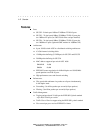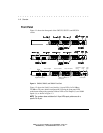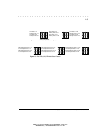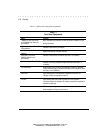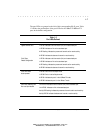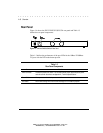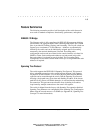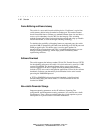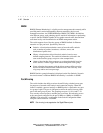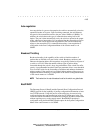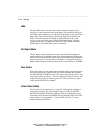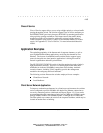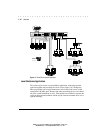
. . . . . . . . . . . . . . . . . . . . . . . . . . . . . .
1-9
Compaq SW3322/SW3323/SW3324 Dual-Speed Switch User Guide
Writer: Fran Spragens Project: Overview Comments: 355307-002
File Name:3324_1.doc Last Saved On:3/16/99 11:31 AM
Feature Summaries
The following summaries provide a brief description of the switch features in
areas such as standards compliance, functionality, performance, and options.
IEEE 802.1D Bridge
The Compaq switch is fully compliant with IEEE 802.1D transparent bridging
specifications. An aggregate address table containing 4096 entries per 8 switch
ports is provided for learning, filtering, and forwarding. The 24-port switch can
support up to a maximum of 12,288 addresses. Addresses are automatically
learned by the switch, and can be individually assigned specific forwarding
treatment by the network administrator if desired. Forwarding table
configuration can be made out-of-band via the console interface or in-band via
SNMP or Telnet. Static and dynamic addresses are both stored in this table.
One static address is assigned per port by default. The Forwarding Table
Configuration screen in the console menus allows you to assign additional static
addresses if required.
Spanning Tree Protocol
The switch supports the IEEE 802.1D Spanning Tree Protocol. This protocol
allows redundant connections to be created between different LAN segments
for purposes of fault tolerance. Two or more physical paths between different
segments can be created through the switch, with the Spanning Tree Protocol
choosing a single path at any given time and disabling all others. If the chosen
path fails for any reason, a disabled alternative is activated, thereby maintaining
the connection. This prevents network traffic from circulating in an endless
loop formed by multiple connections to the same LAN segment.
The switch is shipped from the factory with Spanning Tree operation disabled.
Spanning Tree parameters are configurable in the Spanning Tree Configuration
Menu using the console menus or via SNMP (see Appendix B, “Spanning Tree
Concepts” for more information).




